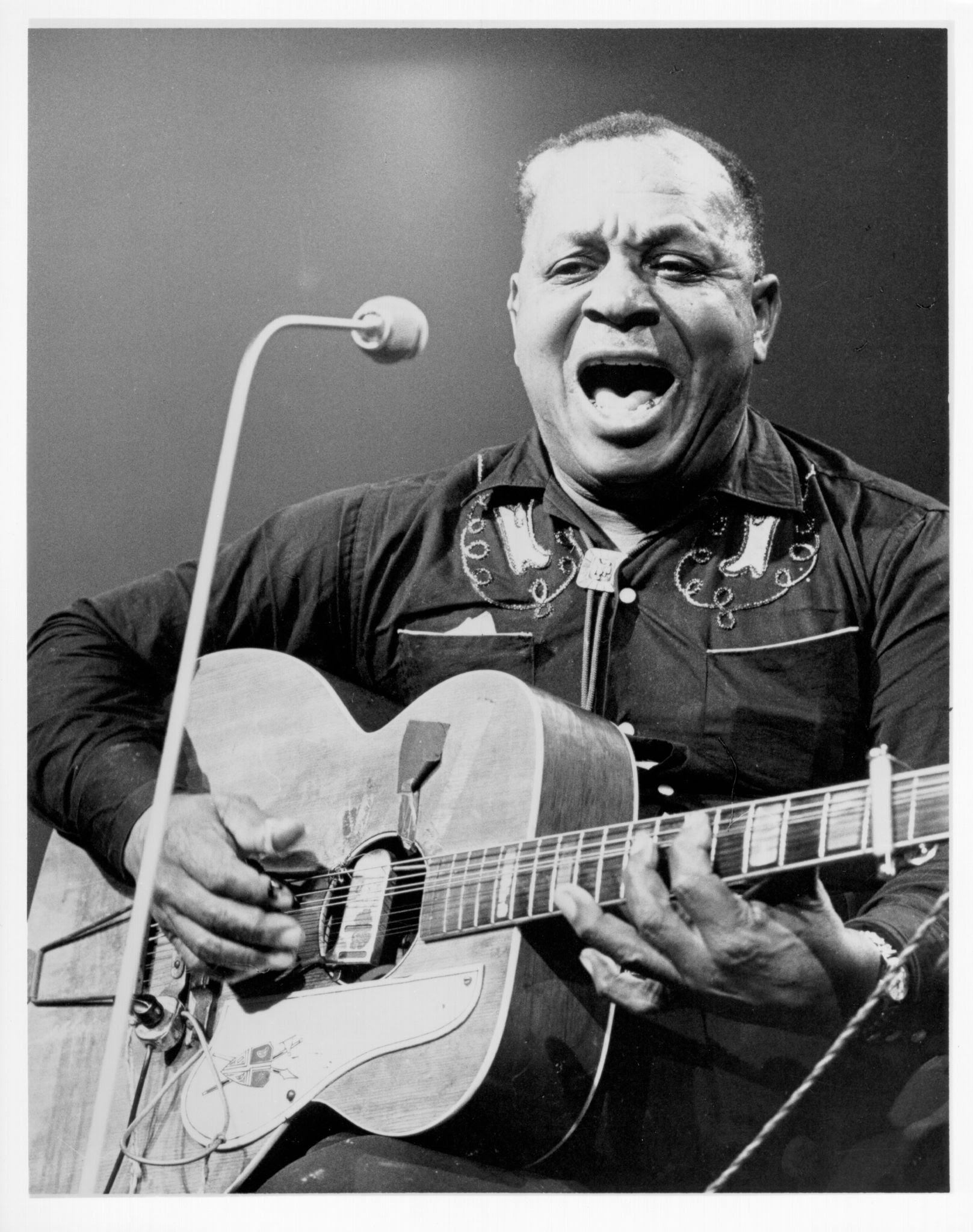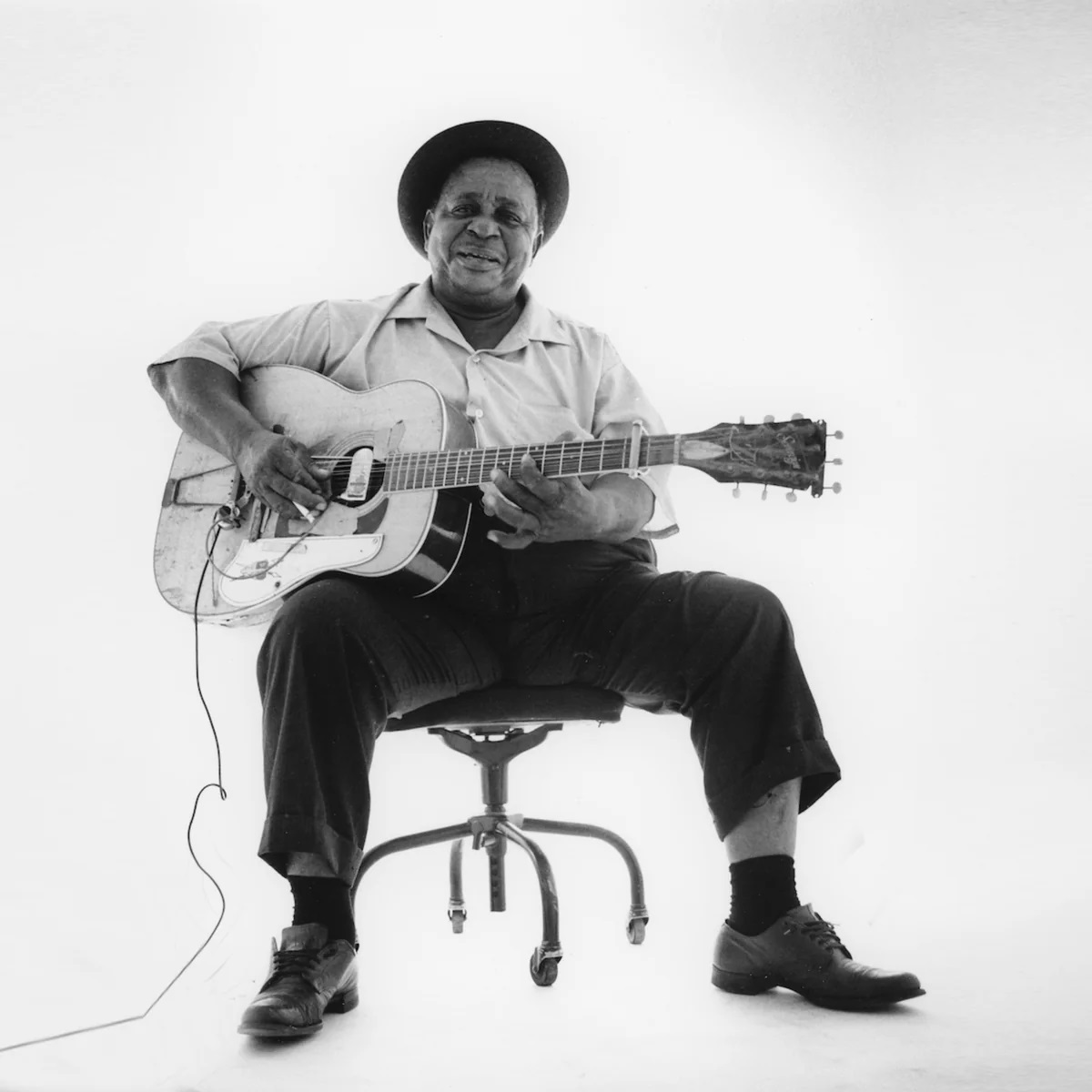Big Joe Williams (1903–1982) was one of the most distinctive and influential Delta blues musicians of the 20th century. Known for his raw, emotive vocal delivery and his unique nine-string guitar, Williams carved a lasting legacy in the history of American music. His songs often told stories of hardship, love, betrayal, and survival—hallmarks of the Delta blues tradition. With a career that spanned decades and inspired generations of blues and rock artists, Big Joe Williams remains a towering figure in blues history.
Here are five of his best songs, showcasing his talent, originality, and influence:
1. Baby Please Don’t Go (1935)
Arguably Big Joe Williams’ most famous song, “Baby Please Don’t Go” is a Delta blues masterpiece that has been covered by countless artists, including Them (featuring Van Morrison), AC/DC, and Aerosmith. Williams’ original version is raw and emotionally charged, driven by his unique guitar rhythms and impassioned vocals. The song’s haunting plea and hypnotic groove helped solidify it as a blues standard.
2. Crawlin’ King Snake (1941)
This traditional blues number gained wider recognition through Big Joe Williams’ powerful interpretation. “Crawlin’ King Snake” features Williams’ signature slide guitar and deep vocal tone, evoking the primal energy and mystery of early Delta blues. Later artists like John Lee Hooker would also popularize the song, but Williams’ version remains one of the most authentic and chilling.
3. Peach Orchard Mama (1938)
With its earthy lyrics and pulsing rhythm, “Peach Orchard Mama” is one of Big Joe Williams’ most vivid and sensual songs. His expressive vocal phrasing and rhythmic guitar work bring the imagery to life, creating a rich tapestry of blues storytelling. This track highlights his gift for turning everyday scenes into evocative musical narratives.
4. Whiskey Head Woman (1940s)
“Whiskey Head Woman” is a gritty, no-nonsense blues song about troubled love and heavy drinking. Williams delivers the lyrics with a sense of personal conviction, making the song feel confessional and real. The rough edges of his guitar and voice only add to its raw emotional power. It’s a perfect example of his unfiltered approach to blues music.
5. Stack O’ Dollars (1935)
This song reflects the Depression-era struggles that shaped much of Big Joe Williams’ early life. In “Stack O’ Dollars,” he sings about money, survival, and the hard choices people are forced to make. The song’s simplicity is deceptive—behind its repetitive structure lies a deep emotional resonance that speaks to the universal human desire for security and hope.
Conclusion
Big Joe Williams’ music embodies the essence of Delta blues—unvarnished, deeply personal, and musically innovative. His influence can be heard in the work of later blues legends and rock pioneers alike. These five songs offer a compelling introduction to his work and a powerful reminder of the roots of American blues.
If you’re new to Big Joe Williams or looking to explore his music more deeply, these tracks are a great place to start.


Comments are closed